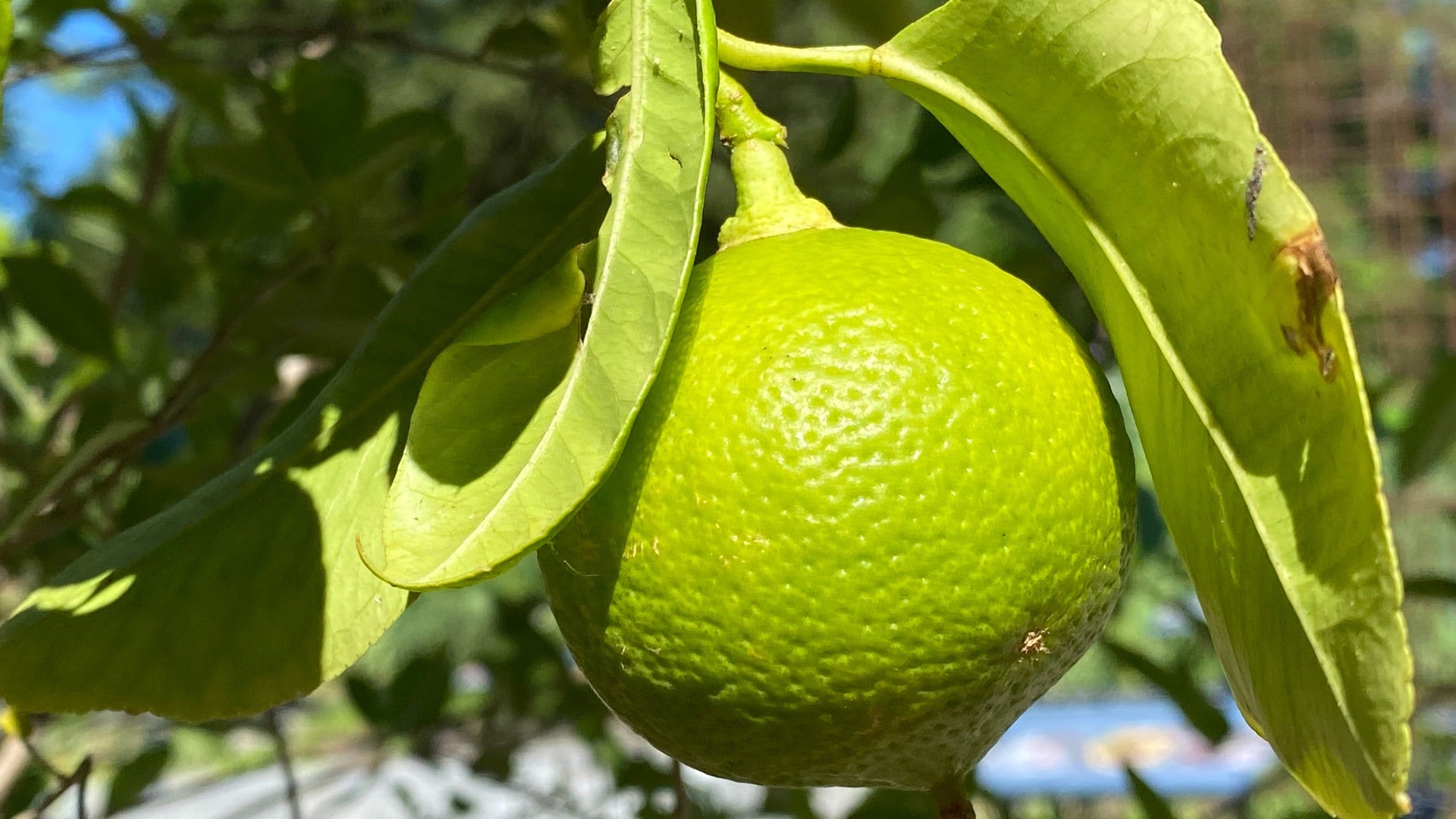Ten percent of adults and seven percent of children in the United States suffer from high cholesterol levels, making elevated cholesterol and its potentially severe health consequences a widespread concern for Americans.
Luckily, besides habit shifts, such as improved diet and exercise, as well as prescription treatments for high cholesterol, there are additional ways to help fight high cholesterol and protect heart health. In particular, adding citrus bergamot to one's daily supplement routine is among the most effective ways to mitigate high cholesterol, naturally.
What Is Citrus Bergamot?
Bergamot (known by its scientific name, Citrus bergamia) is a citrus fruit that most commonly grows in southern Italy. Although many may have consumed bergamot in Earl Grey tea as a flavoring, fewer people know the fruit's significant health benefits.
Bergamot and bergamot extract (as typically found in supplements) are incredibly high in flavonoids, which are compounds that can help to improve immune and cardiovascular health, reduce inflammation, have an antioxidant effect, and lower cholesterol levels.
Can Bergamot Lower Cholesterol?
Many rigorous scientific studies have found that bergamot oil can reduce cholesterol levels. In addition, studies using bergamot to lower cholesterol in humans and animals have found that bergamot contains flavonoids that can reduce overall lipid levels (including cholesterol and triglyceride levels). All this evidence demonstrates that supplementing with bergamot for high cholesterol is likely to help lower total cholesterol levels.
How Long Does It Take for Bergamot to Lower Cholesterol?
Although the time that it takes for bergamot to lower cholesterol depends on the specific health status of the individual, total cholesterol levels, and other individual factors, there are some general estimates that have been derived. Most often, studies of the effects of citrus bergamot on cholesterol show that cholesterol levels tend to decrease after just a few weeks of taking bergamot extract.
Does Citrus Bergamot "Clean" Arteries?
Bergamot extract contains antioxidant polyphenols called melitidine and bruteridine, which are thought to help reduce oxidative stress and block free radical damage in the blood vessels and throughout the body. These antioxidants may also reduce arterial plaque formation (atherosclerosis).
As for the supplement's ability to "clean" arteries, one recent study has demonstrated that bergamot can have this effect, showing that subjects who took bergamot supplements for six months significantly reduced their arterial plaque buildup. Thus, taking bergamot for heart health and blood vessel function is likely effective.
How Much Bergamot Should I Take to Help Lower My Cholesterol?
When taking a bergamot supplement for cholesterol, taking the correct dosage is an integral part to ensure that the maximum benefits are received to help lower cholesterol levels and to help improve heart health. The appropriate bergamot dosage varies depending on the form in which it is consumed (e.g., supplement, oil, etc.), how concentrated the bergamot is, and one's specific health situation. However, studies of bergamot supplementation for high cholesterol have generally used 150 mg to 1500 mg of bergamot extract daily.
What Are the Other Health Benefits of Citrus Bergamot?
In addition to bergamot supplement benefits for cholesterol levels, arterial health, and cardiovascular wellness, further benefits of bergamot supplements include the following significant health effects:
Reduces Inflammation
A key benefit of bergamot is that it is thought to create broad anti-inflammatory effects in the body. Bergamot essential oil contains the compounds linalool and carvacrol, which studies have found can have anti-inflammatory properties. However, additional studies are needed to rule out potential toxicological effects of essential oils in humans.
Eases Joint Pain
Although further studies are required to confirm this effect, another health benefit of bergamot supplementation may be to help protect the joints of those taking aromatase inhibitors (which commonly cause joint pain) for cancer treatment.
Promotes Mental Health
Bergamot’s health benefits may also extend to its positive effects on mental health. For instance, multiple clinical studies have found that aromatherapy with bergamot essential oil can help to reduce anxiety and stress, alleviate depression, relieve pain, and reduce blood pressure and heart rate. As a bonus, inhaling bergamot essential oil has few side effects, so it may be an easy and low-risk way to improve mental well-being overall.
In addition, taking bergamot supplements may help those with schizophrenia to improve their cognitive functioning. A recent study showed that after supplementing with an extract of bergamot, called bergamot polyphenolic fraction (BPF), for eight weeks, those with schizophrenia showed improved results on a variety of cognitive tests. These benefits to mental clarity may also extend to those without schizophrenia, but further studies are needed to confirm these effects.
What Are the Potential Side Effects of Bergamot?
Although numerous citrus bergamot supplement benefits exist, taking bergamot may also cause side effects. Side effects of bergamot include greater sun sensitivity (which could lead to sunburn), allergic reactions, and interactions with medications such as photosensitivity-causing drugs, antibiotics, and diabetes medications. In addition, although bergamot supplementation while taking statins may make statins more effective, it may also increase the risk of statin and bergamot side effects, such as muscle pain. The risk of being affected by side effects demonstrates why it's essential to speak with your doctor before starting to take bergamot supplements, particularly for those already taking medications.
Can You Take Bergamot Indefinitely?
Currently, the potential long-term effects of taking bergamot supplements indefinitely are unconfirmed, with more needed studies over extended periods, in order to answer this question more definitively.
Best Bergamot Supplement for Cholesterol
Naturally, anyone aiming to lower their cholesterol levels through bergamot supplementation will want to seek out the best supplement available. InnerThera's Bergamot Heart perfectly fits the bill as one of the best bergamot supplements on the market.
Bergamot Heart
InnerThera's Bergamot Heart contains 1,000 mg of full-spectrum Calabrian Bergamonte®. This is an incredibly high-quality form of bergamot extract, the efficacy of which is supported by a university-based human study of Bergamonte®. This rigorous study found that Bergamonte® may lower LDL cholesterol ("bad cholesterol") levels by 36 percent, raise HDL cholesterol ("good cholesterol") levels by 40 percent, and reduce blood sugar by 22 percent, in addition to having other benefits.
In addition to 1,000 mg of full spectrum Bergamonte®, Bergamot Heart also incorporates several synergistic ingredients that further enhance the benefits of the supplement's central ingredient. These include 50 mg of vitamin C to reduce lipid oxidation that leads to cellular breakdown and 100 mg of artichoke extract to support healthier blood pressure. Anyone hoping to improve their cardiovascular health may consider getting their daily dose of these compounds and ingredients by taking just two capsules of Bergamot Heart daily.
All InnerThera products are manufactured in the United States in a trustworthy facility that is regulated by the FDA. Every InnerThera product, including Bergamot Heart, is also sent for third-party testing to confirm its pure and highly potent ingredients, therefore maximizing its health benefits. Bergamot Heart is guaranteed non-GMO, vegan, soy-free, and gluten-free.
Please speak with a medical professional before taking Bergamot Heart (or any supplement). Whether Bergamot Heart is an appropriate addition to your supplement routine depends on your unique health conditions as well as any medications that you take that may interact with bergamot.







